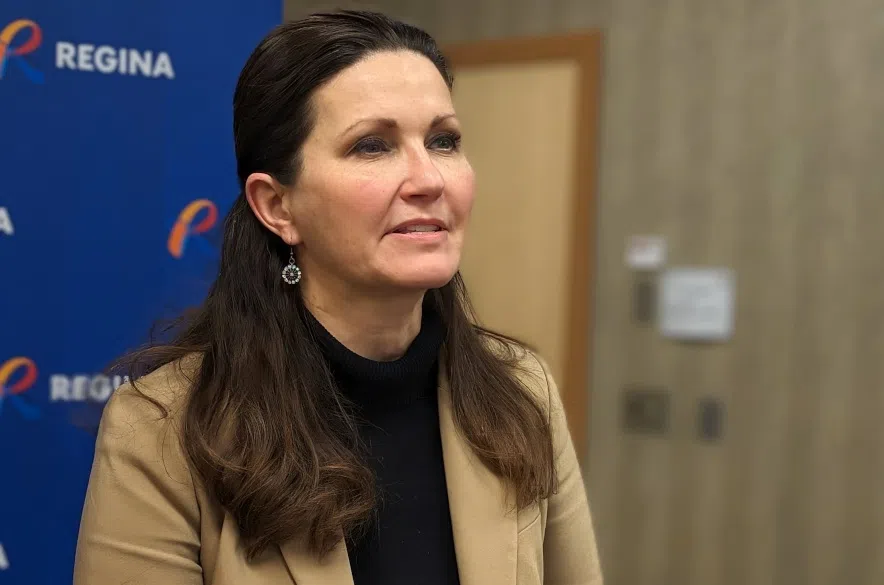Several hours into the fourth day of budget deliberations, and well past suppertime, talks abruptly ended on Monday with a call for a vote and a narrow passage of Regina’s 2024 capital and operating budget.
The mill rate increase stuck at 2.85 per cent for property taxes, the base rate increase for utilities was passed at three per cent.
Two councillors tried to call for a vote on the capital and operating budget earlier in the day but were bounced back by procedure; not every councillor had their chance at two rounds of questions and discussion.
Councillors’ patience seemed to be running short, with the answer to one of Coun. Jason Mancinelli’s detailed questions interrupted twice by councillors hoping to speed things up.
Eventually, Coun. Bob Hawkins began moving at every opportunity to recess and push discussion back to another day. He tried three times – first to Tuesday, then off to the first week in January.
When that didn’t work, Hawkins pushed ahead and called for a vote on the outstanding portion of the budget as it stood.
“People are tired, they’re hungry, staff has been here a long day, Christmas is pressing,” Hawkins said as he called for the vote.
The vote to pass the budget succeeded narrowly, 6-4.
Hawkins didn’t vote to pass the budget. He said people were tired and he wanted to give them the opportunity to vote it through. Hawkins said he didn’t think democracy would be served by them going at it for another several hours and landing at the same conclusion they were at at that time.
Mayor Sandra Masters seemed almost resigned to the passing when she spoke to media after the meeting.
“I think what you saw was six members of council were going to vote to pass the budget, and so I think you just saw a concession on the other side just to say ‘OK, we can be done,’ ” said Masters.
“I think when you read the tea leaves and you know they have the six votes, that is what it is.”
Masters voted against the budget. She said she agreed with Mancinelli.
“I didn’t want to see money pulled out of downtown; I think that’s an error. I didn’t want to see a lack of asset management planning – I would have taken perhaps some of the other spend for the allocation of projects and used it differently,” said Masters.
A good chunk of the afternoon was spent on Mancinelli’s time as he asked detailed questions on finances from administration and then moved some equally detailed amendments, which he said were aimed at getting money to capital projects for downtown Regina that had been pushed back by administration.
His amendments were almost all voted down, save one, directing administration to “bring an annual update to the audit and finance committee in November of each year; a detailed capital spending report for the current year; budget to actuals for each of the projects outlined.”
Budget talks took about four days this year, longer than they have in recent memory in Regina. Masters said part of the reason for that was confusion stemming from how the budget was presented – partly a symptom of how administration chose to work within the multi-year budget.
The difficulties didn’t give Masters any trepidation about another multi-year budget process. She said they learned something from it. She said this year could have been simpler if it was presented with last year’s budget book, reproduced with tracking changes.
“You could have tracked what changed on the capital plan, you could have tracked right within the budget book – which we’re all used to reading, as are residents – and so had that just been reproduced … and had tracked changes in it, it would have been much easier to read as opposed to working our way through three reports,” said Masters.
The mayor isn’t the only person on council who’s complained or been frustrated by how the budget was presented this year. During discussions, several commented on how difficult it was to come up with solutions to problems with what they were given.
Masters brought forth amendments last week which would change how administration presents the accounting in the budget process but they were referred for more information. She hopes the changes would help with the length of time the next budget will take to discuss.
The numbers
At the end of the day, the budget’s mill rate increase was approved at 2.85 per cent – equal to about $5.57 more a month, or $66.84 more a year, for the average Regina home assessed at $315,000.
The mill rate increase was first proposed at 2.2 per cent, but rose to 2.82 per cent when administration got a revised budget ask from REAL, and then rose to 2.85 when a motion to add $100,000 to the cold weather strategy passed.
The base utility rate increase was approved at three per cent instead of the four per cent which was passed in principle by council last year – saving the average user about $0.90 a month. The consumption-based utility rate increase was passed at four per cent. That adds up to $5.70 more a month for the average user, or $68.40 more per year.
Regina homeowners will also see an increase on their utility bills in the new year when garbage pickup is moved there from property taxes and the cost of the green bin program is added. The increase will be $8.52 a month for those with the smaller 240-litre cart, and $16.13 a month for those with the 360L cart.
Altogether, the increases add up to $19.79 a month or $237.48 a year for those with the smaller bin, and $27.40 a month or $328.80 a year for those with the larger bin.
Keeping the garbage collection in with the property tax increase, the total increase is calculated to be a 5.94 per cent mill rate increase.











